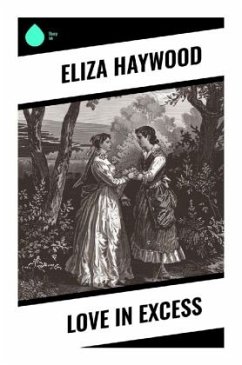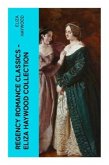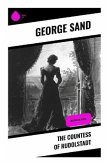Eliza Haywood's "Love in Excess" is a seminal work of the early 18th-century English novel, characterized by its exploration of love, desire, and the complexities of human relationships. Written in a flowing, poetic prose style, the narrative intertwines elements of comedy and tragedy, illustrating the tumultuous passions experienced by its characters. The novel combines epistolary elements with vivid character portrayals, reflecting the libertine ethos of its time while critically engaging with questions of morality and societal expectations regarding love and courtship. Haywood deftly navigates themes of seduction and betrayal, offering readers a nuanced exploration of romantic entanglements set against the backdrop of a society in flux. Eliza Haywood (c. 1693-1756) was a pioneering female writer who emerged in the wake of the Restoration, a period marked by the re-emergence of theatricality and sexual politics. Her own experiences as a woman in a male-dominated literary landscape likely informed her nuanced understanding of the dynamics of love and power. Through her work, she sought both to entertain and critique the norms governing gender and relationships, positioning herself as an influential member of the early feminist movement. "Love in Excess" is recommended for readers interested in the evolution of the English novel and the exploration of early feminist themes. It serves as both a fascinating historical text and a rich literary experience, providing insights into the human condition that resonate even today. Haywood's incisive exploration of passion and the intricacies of affection will captivate those who seek depth and complexity in their reading.
Bitte wählen Sie Ihr Anliegen aus.
Rechnungen
Retourenschein anfordern
Bestellstatus
Storno








